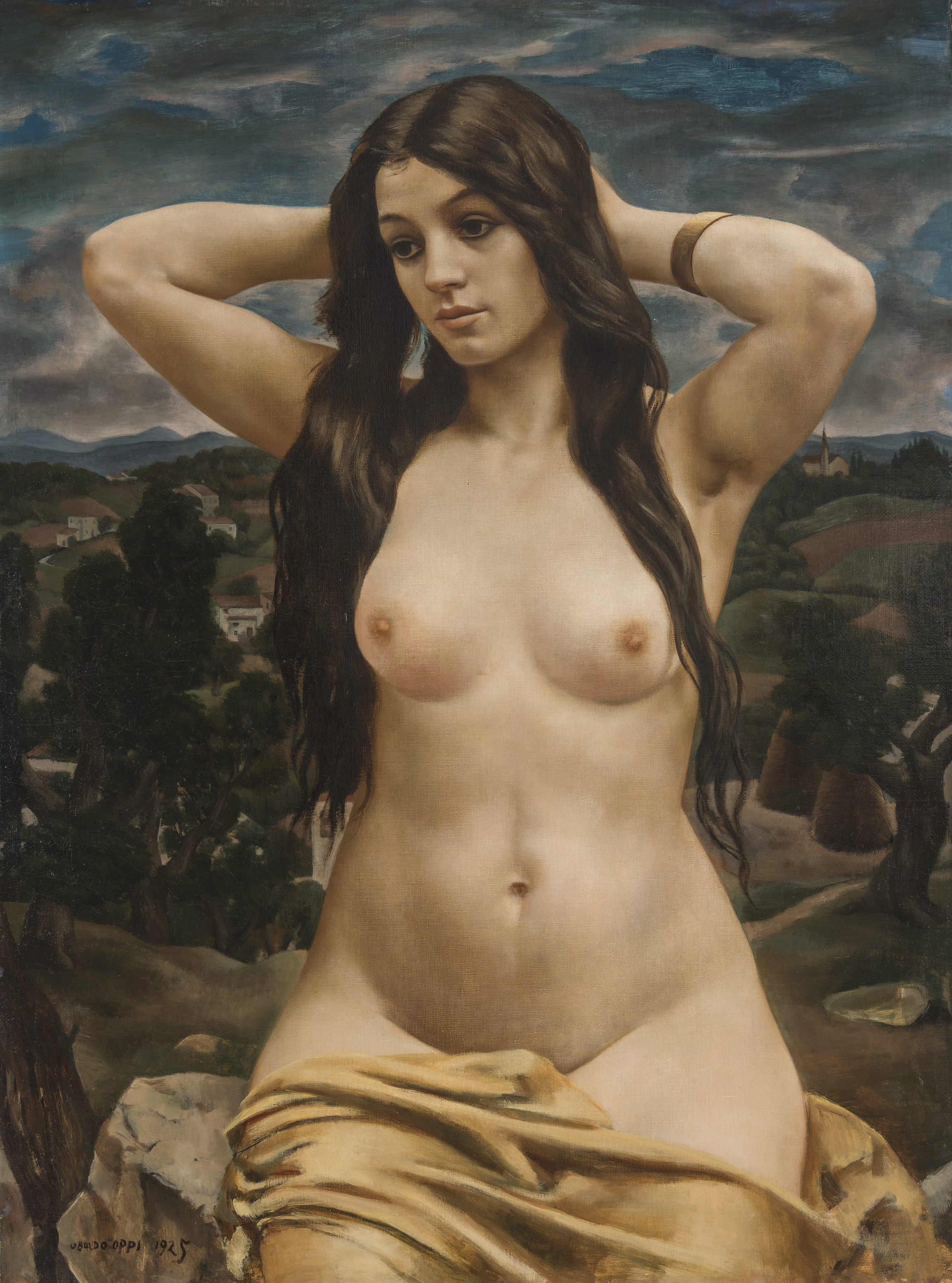
Artworks

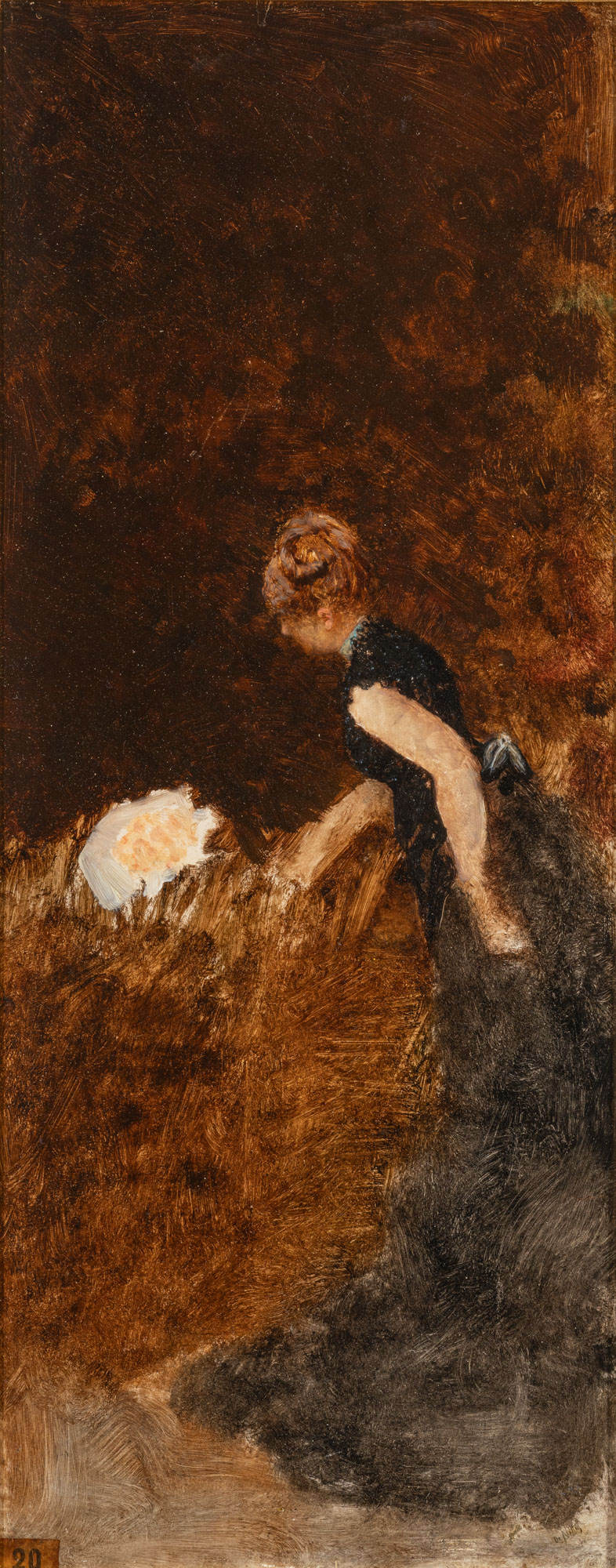
Giuseppe De Nittis
Woman with a Bouquet of Flowers (Preparations for the Party), c. 1883
Giuseppe De Nittis is one of the most celebrated Italian painters active in Paris during the second half of the nineteenth century. In recent years, his work has received definitive international recognition, including the first major monographic exhibition in the United States, ‘An Italian Impressionist in Paris: Giuseppe De Nittis’, held at The Phillips Collection in Washington in 2023.
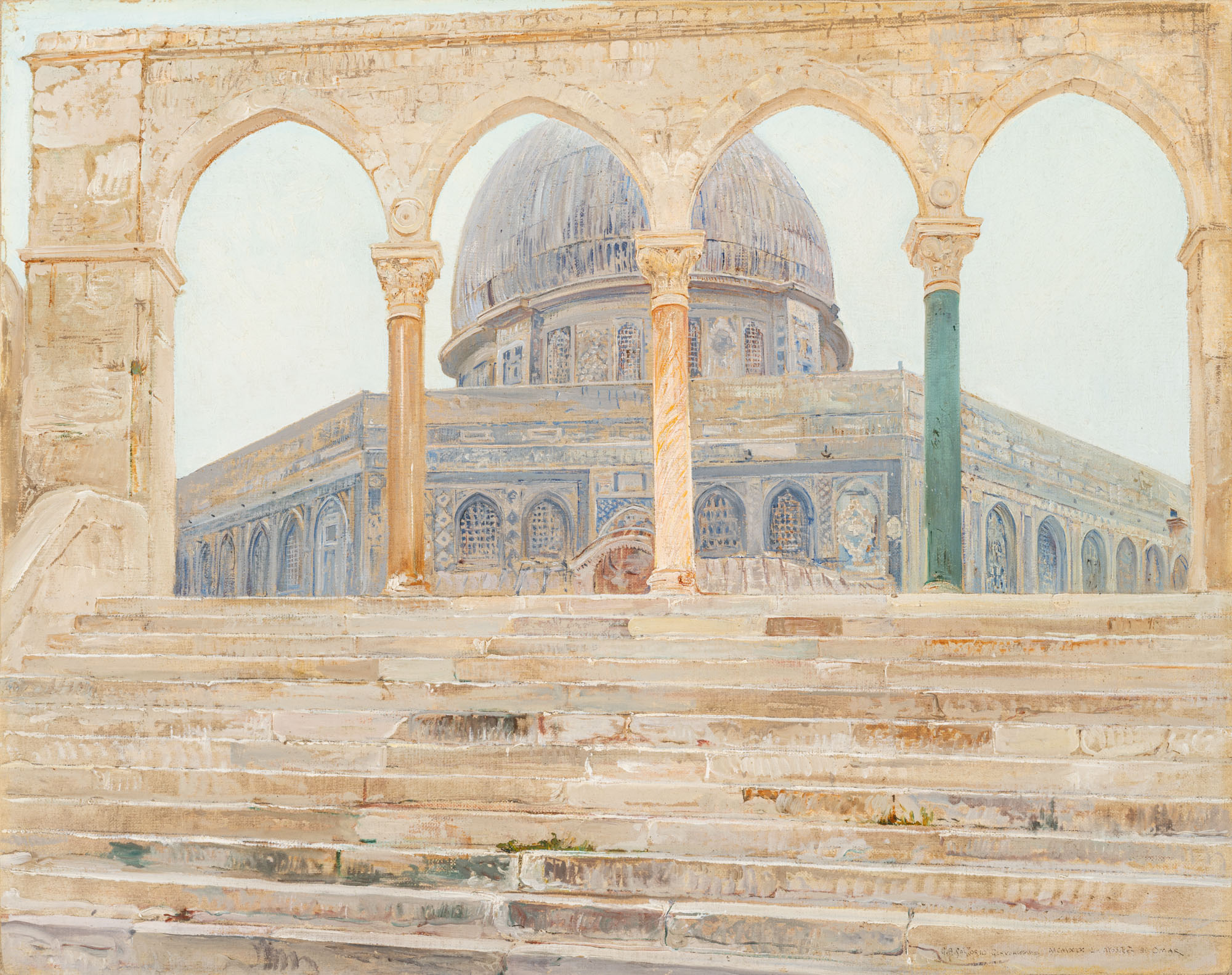
Giulio Aristide Sartorio
Jerusalem. The Mosque of Omar, 1919-1920
Giulio Aristide Sartorio visited Egypt in 1919, commissioned by King Fu’ad I to paint two portraits. He took the opportunity to also explore Syria and the Holy Land, and the places he visited became subjects of his pastels and paintings. In Jerusalem, he was particularly fascinated by the Mosque of Omar, which inspired the painting Jerusalem. The Mosque of Omar.
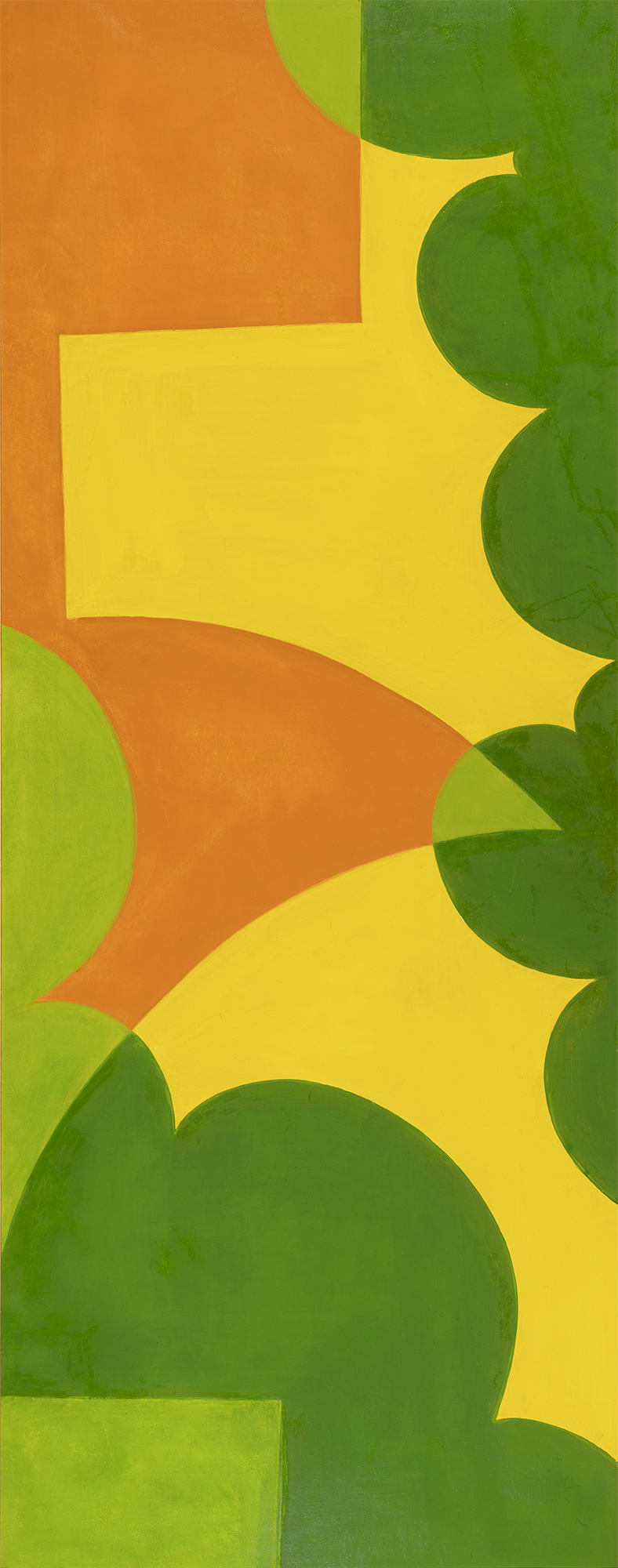
Giacomo Balla
Futurist Landscape (Dynamic Forms), c. 1918-1919
The painting, dating from 1918–1919, was part of a screen created by Giacomo Balla for his home on Via Paisiello. In this context, the artist carried out an early experiment in Futurist “total art,” creating an environment dominated by Futurist shapes and colors that would have a significant impact on the European avant-garde.
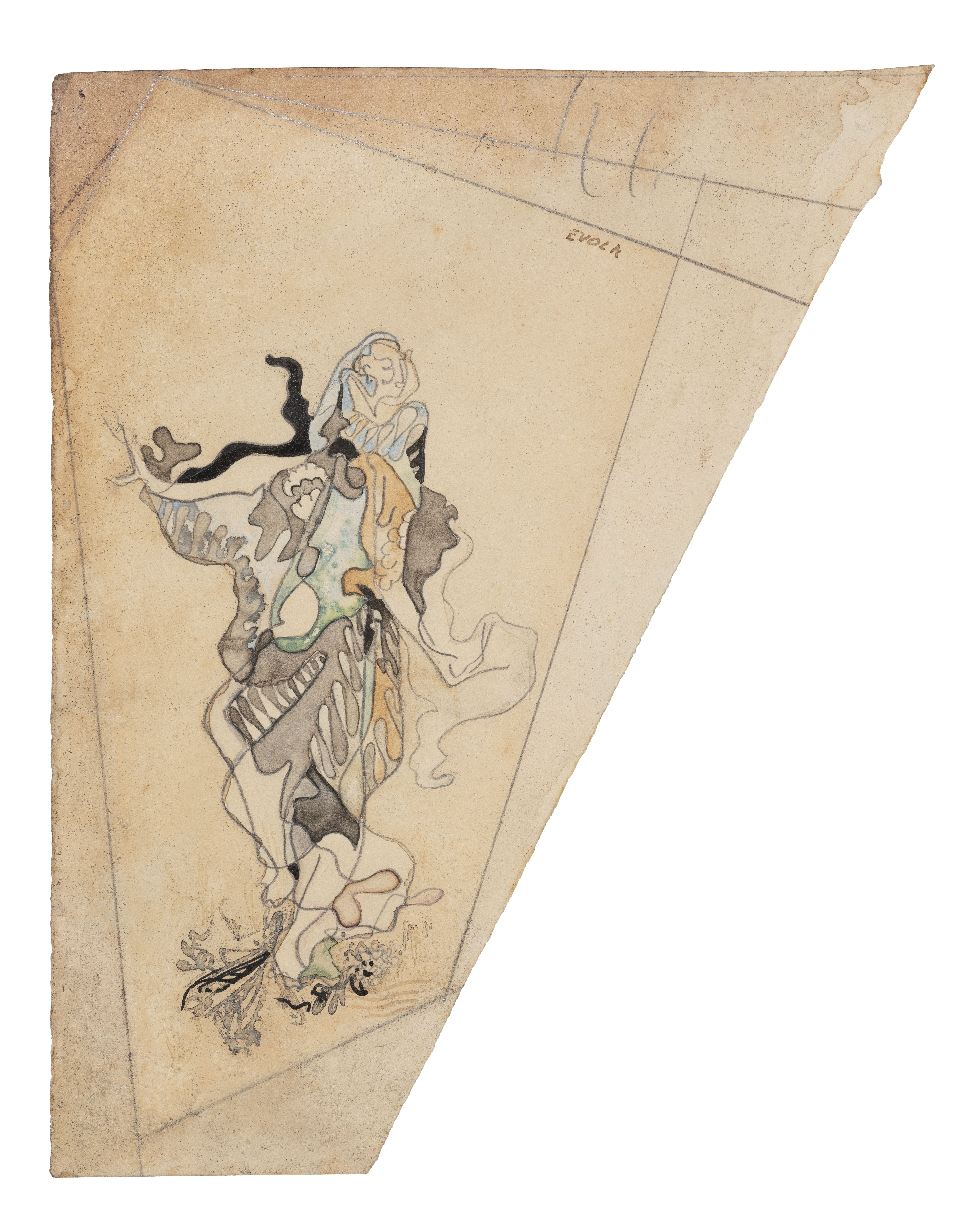
Julius Evola
The Dry Leaf Nymph
Italian philosopher and painter (Rome 1898 - there 1974).
Initially dedicated to technical and mathematical studies (he was enrolled in the Faculty of Engineering), he soon followed his true vocation, art and philosophy, joining, after the end of the First World War (in which he participated as an artillery officer), to the Futurist movement of Balla and Marinetti (in 1919 he was present at the National Futurist Exhibition in Milan, in 1921 at the Exposition internationale d'art moderni in Geneva).
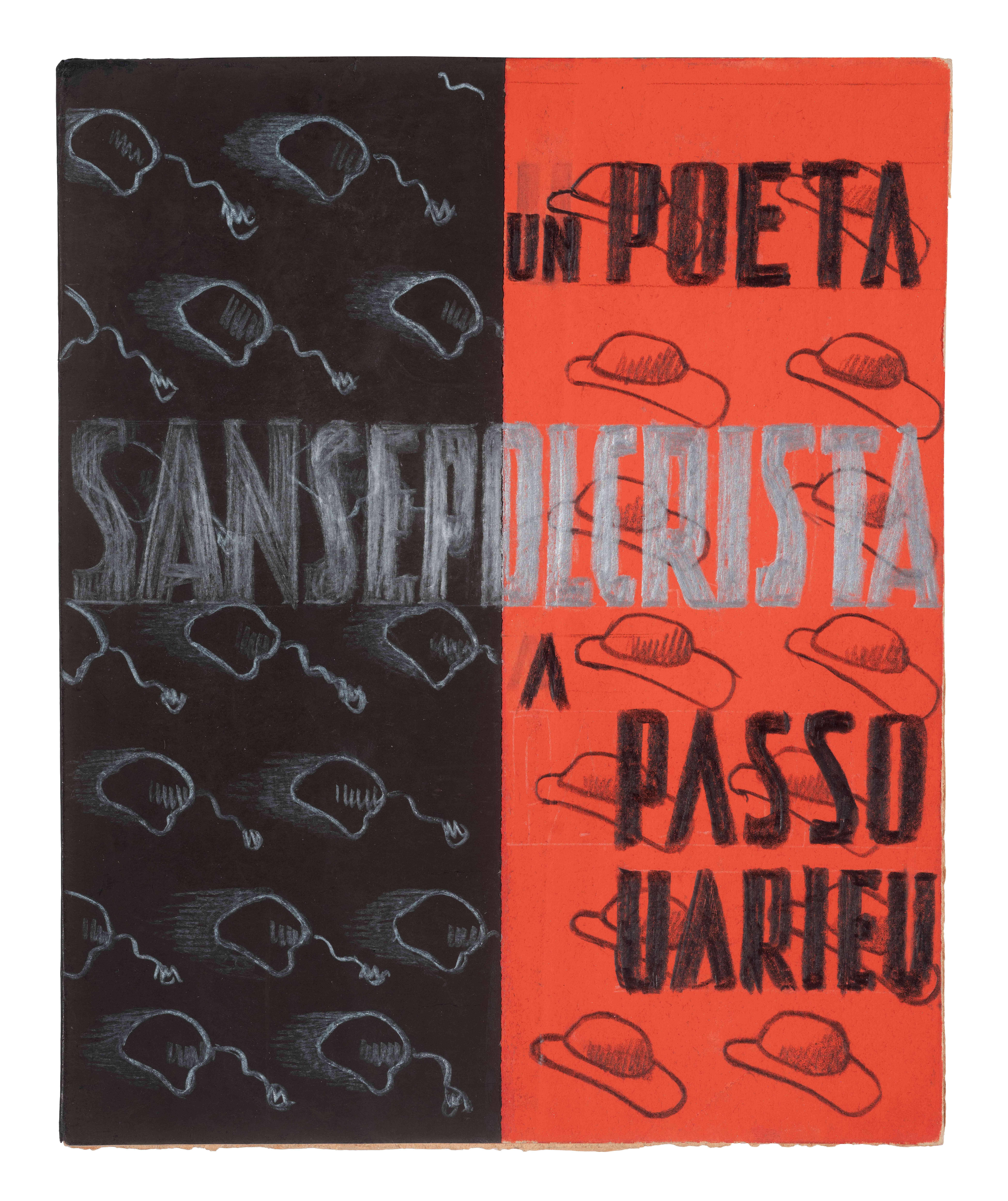
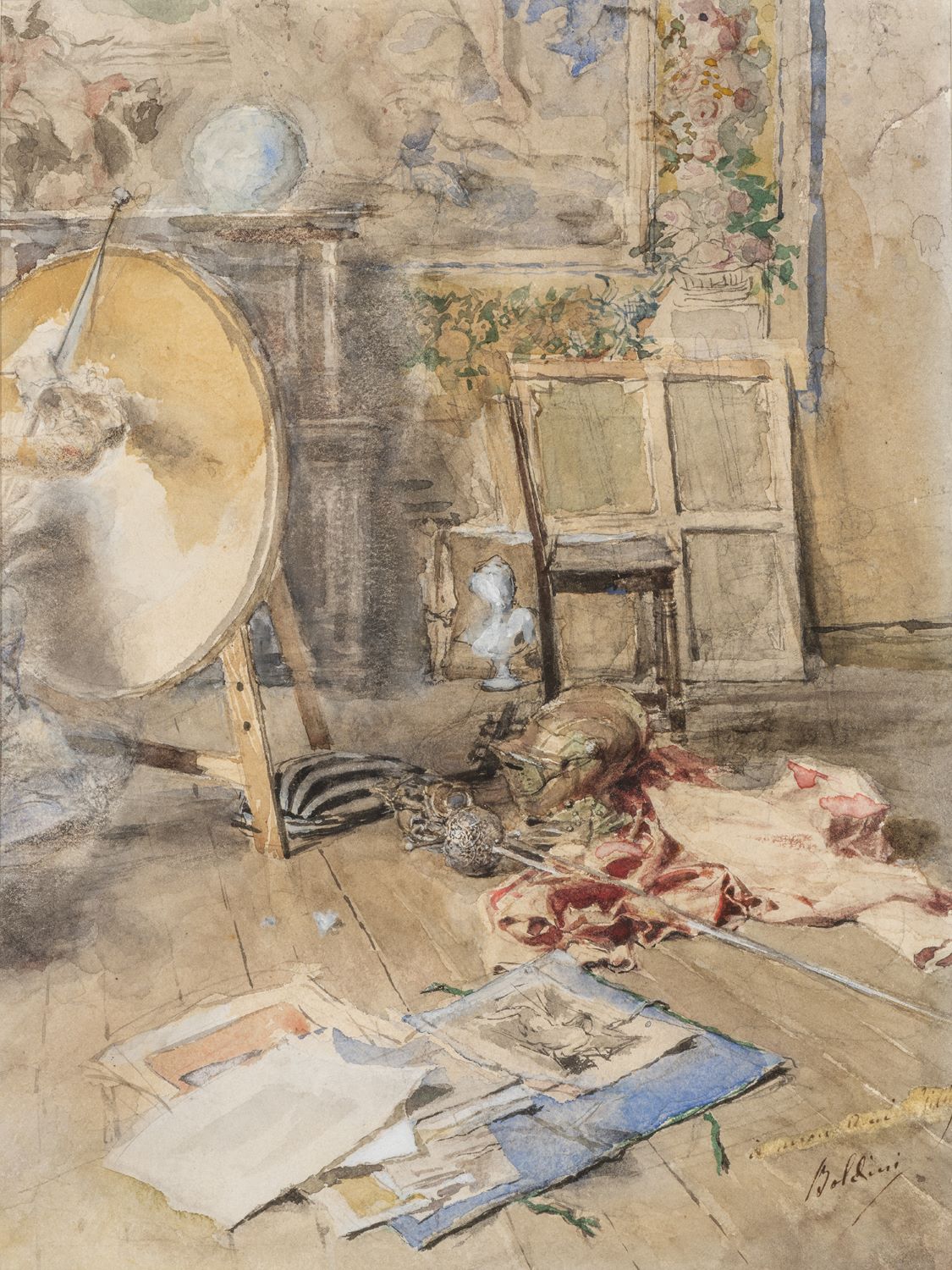
Giovanni Boldini
The artist's studio
The watercolor The Artist's Atelier is an authentic and valuable work by Giovanni Boldini. Boldini, after training in his hometown (training nourished by the example of important ancient masters such as Cosmè Tura and Dosso Dossi), moved to Florence for about a decade. In 1871, seduced by Paris, he made the decision to move to the French capital.
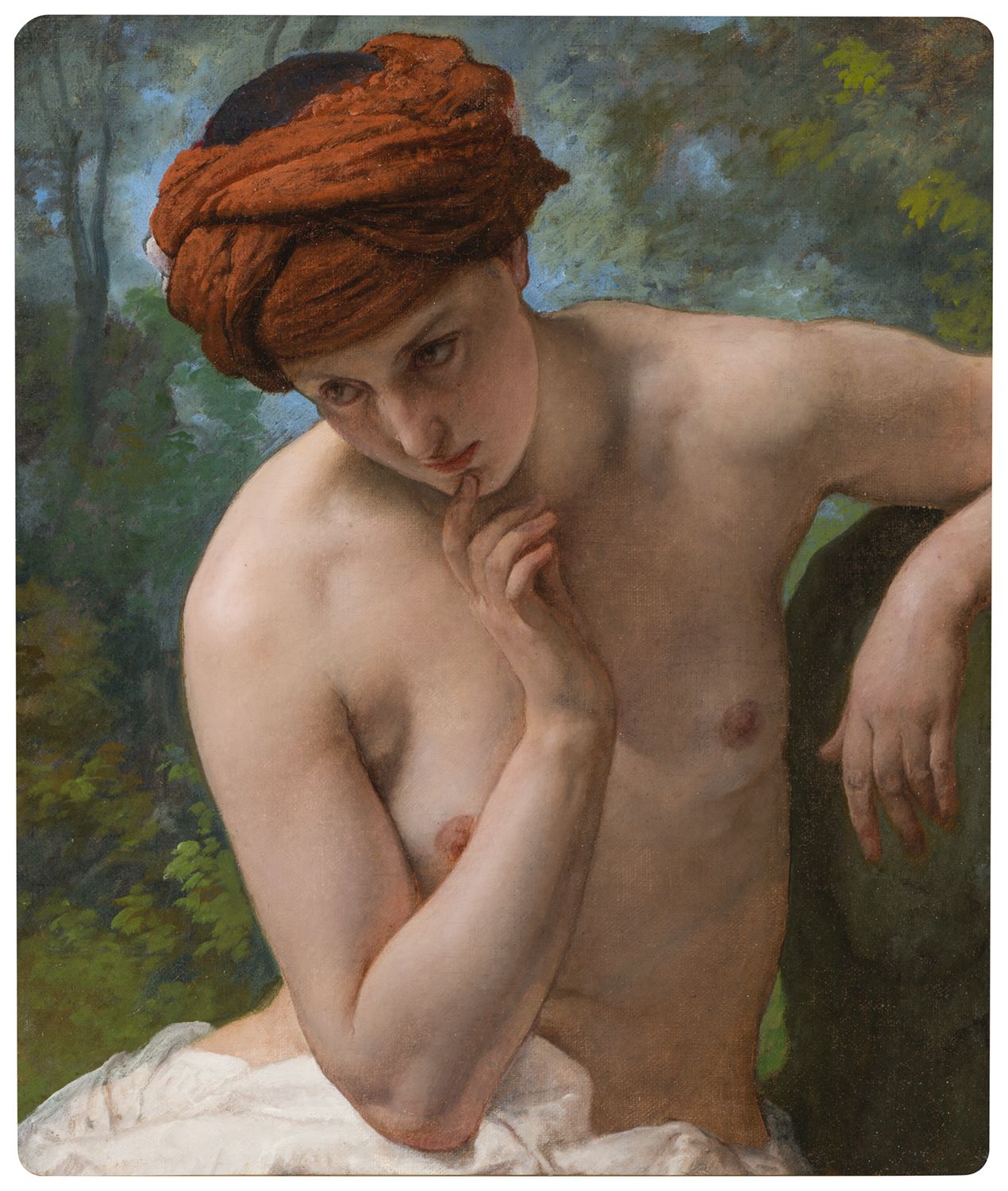
Francesco Hayez
Odalisque
This posing nude, probably studied from life and characterized from a stylistic point of view by the suggestive solution of the relationship between finished and unfinished, must be compared to a series of similar figures that we find in the latest production of the painter who, now retired from teaching at the Brera Academy and from his commitments to historical painting, he dedicated himself to portraits and this type of research on the female nude.

Graziano Pompili
The guardians of the Mistral
Graziano Pompili arrived in Montecchio in 1982, going to live in an old house on the outskirts of the town, immersed in the countryside perpetually marked by the cycle of the seasons.
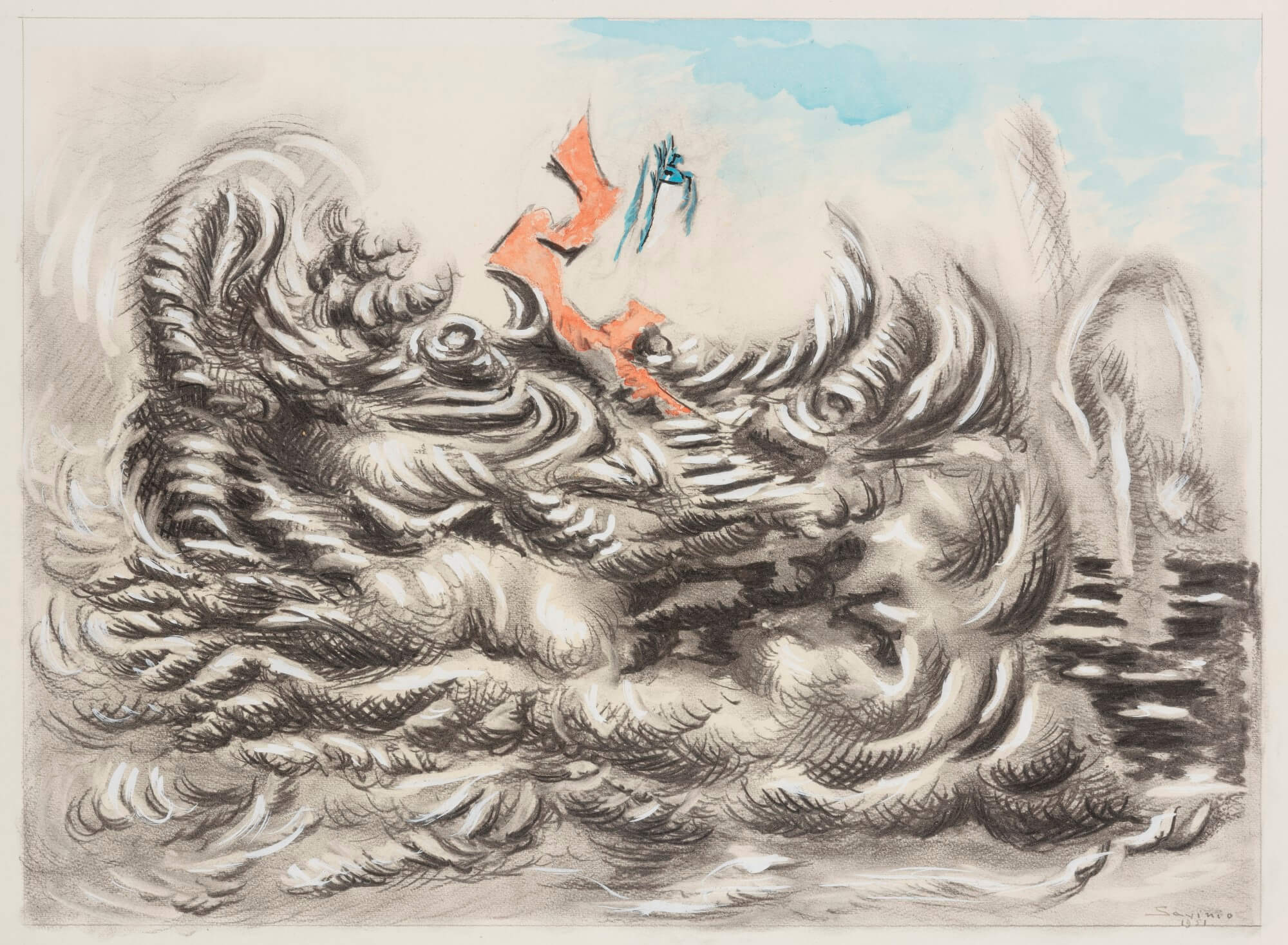
Alberto Savinio
Matter in transformation
In the tempera paintings created in the early fifties by Alberto Savinio, new types of "apparitions" appear. Nature and people are on the verge of becoming magmatic and uncontrollable matter, affected by the same process of decomposition.
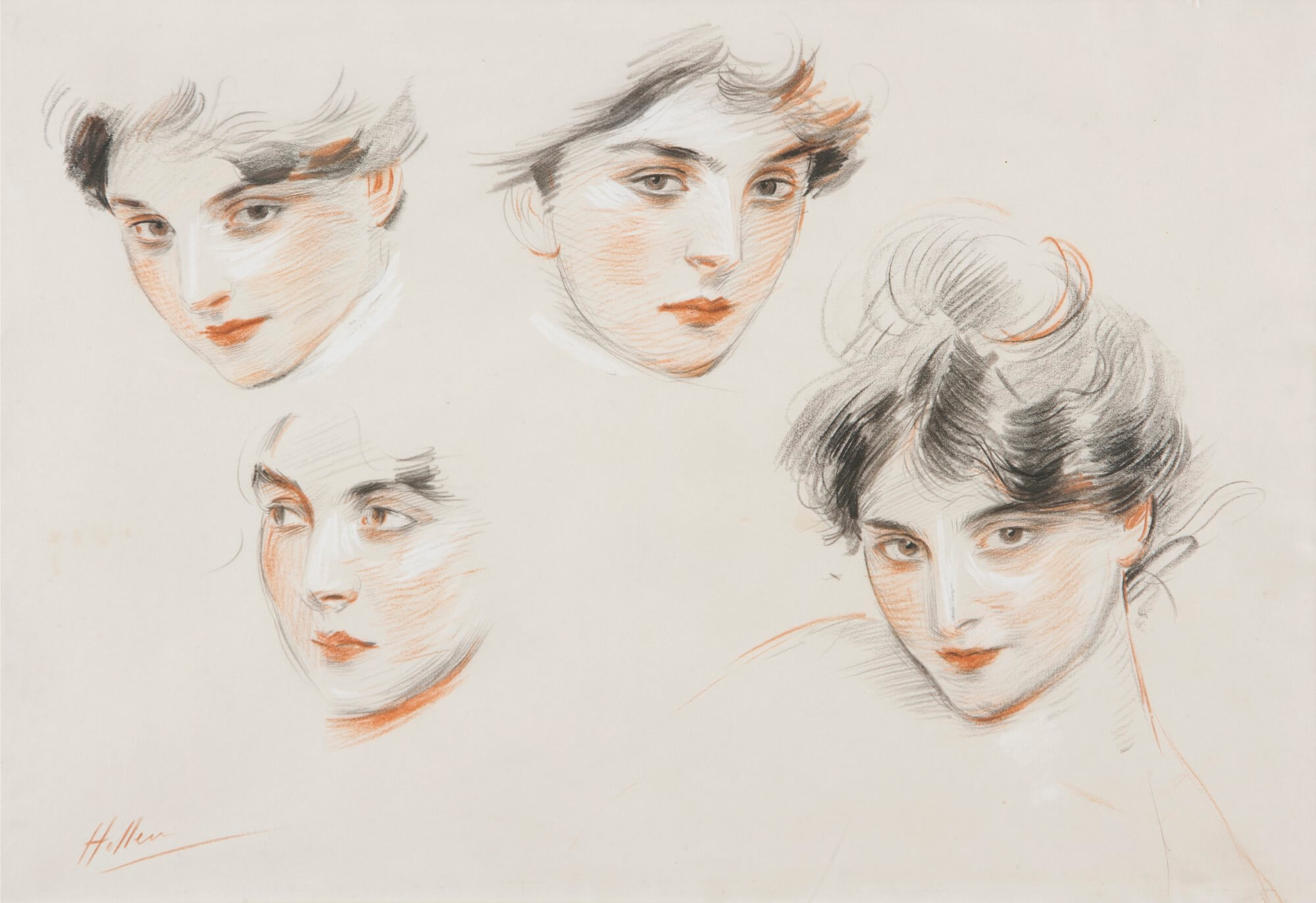
Paul César Helleu
Mademoiselle de Conquis
At the beginning of the twentieth century, Paul César Helleu's painting, now acclaimed and recognizable beyond European borders, opened up a new creative season.
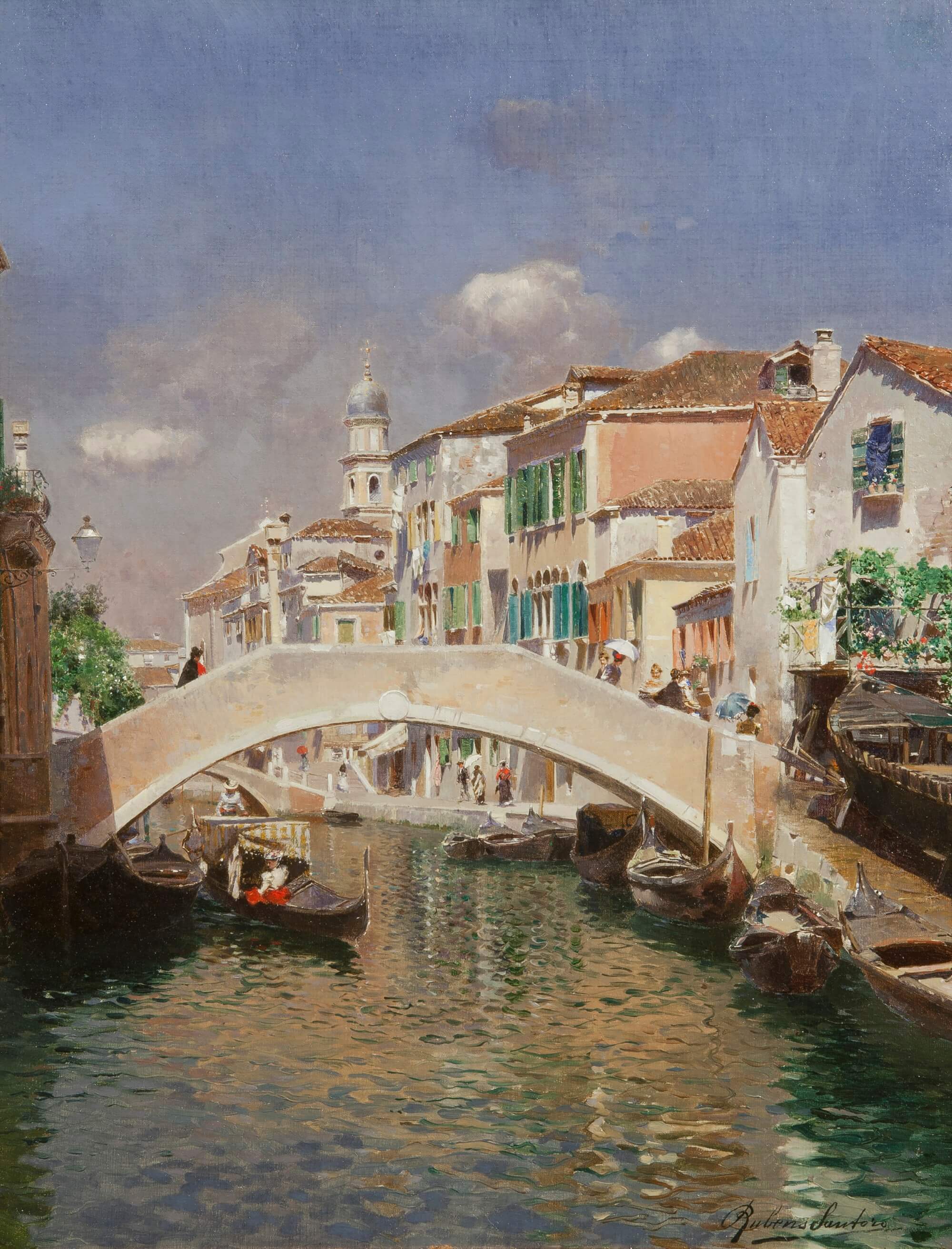
Rubens Santoro
Rio di Ognissanti, Venice
Rubens Santoro’s first encounter with Venice dates back to 1880, while he only began to stay there in 1884. The city fascinated him and he immediately decided to try his hand at urban views.

Giovanni Boldini
Volume of drawings
Giovanni Boldini (Ferrara 1842 – Paris 1931) is a timeless painter. His artistic vitality was as unstoppable as his genius; his biography is a complex and fascinating puzzle, made up of meetings, disagreements, drastic decisions and great passion: he was both a terrible man and a sublime artist.
